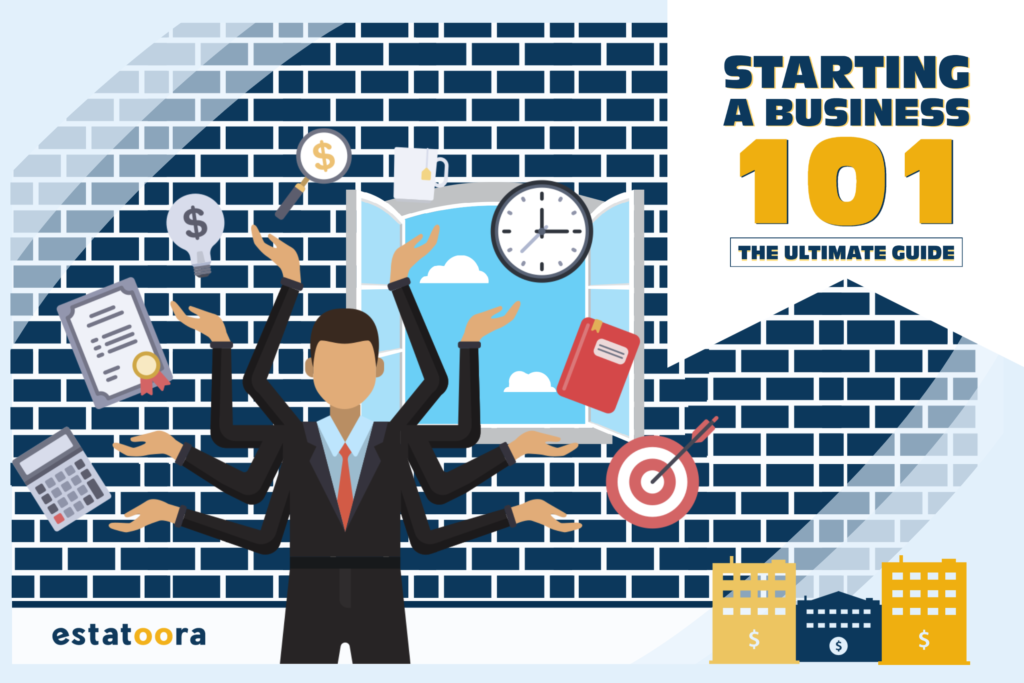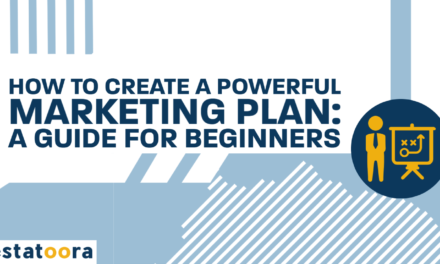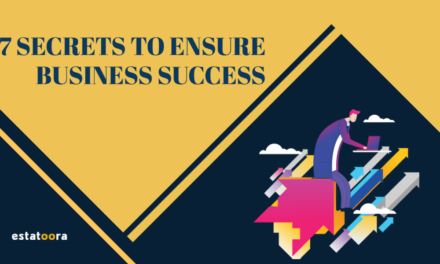Content Guide
Starting a Business 101: The Ultimate Guide Content Guide
Introduction
Jumping to entrepreneurship is a whole different decision that could make you or break you.
Starting a business is not as easy and simple as opening a new tab or turning to an incognito window when you feel like switching. Sometimes, these kinds of decisions are the ones who would teach you life lessons you never imagined coming.
So, here’s a pro-tip as you jump to entrepreneurship:
Come ready.
There’s nothing wrong with being ready. Especially, when you are going to one of your adventurous chapters in life.
This is just the start.
The Global Entrepreneurship Monitor report concludes that there are 582 million entrepreneurs all over the world.
It’s never too late to start your own business. There have been successful entrepreneurs and financial influencers who started from the ground up.
There’s no need to be perfect in starting a business and the first thing you should do is take a leap of faith and start your own.
As you go along in this field, you’ll learn many effective strategies and techniques. There are small business trends and predictions that are seemed to be at an all-time high in 2021
- Lending programs related to COVID-19 will be key, but they are not sufficient. Alternative sources of funding will be needed as well to meet business owners’ capital needs in 2021.
- Digital marketing spend is likely to increase, as traditional marketing and PR gets a facelift in 2021.
- Small businesses will drive the adoption of developing technologies, and AR/VR will come into their own as the COVID-19 pandemic continues into 2021.
Depending on what kind of trend you’ll go into, you might end up practicing them as you aim to grow your business in the future.
In this article, you’ll gain ideas on starting a business, its advantages and disadvantages, techniques and strategies, and the ultimate guide that might shape you with a successful mind.
You’ll be ready to jump into entrepreneurship and face the challenges as you go through.
ADVANTAGES OF STARTING A BUSINESS

Not all people are born entrepreneurs but you can be one.
Starting a business is freedom in disguise. Employees work on a 9-5 time frame not knowing that there is a bigger world in entrepreneurship.
As you plan to start your own business, you have an option whether to franchise an existing brand or make your own. Either of the two, it is guaranteed that you’re able to gain financial rewards and extra income.
You are allowed to make multiple income streams without worrying about restrictions to one job only. It also helps to know several low-cost business ideas you can start even while at home.
Since you are the boss of your own, you don’t need to wake up early every morning and do your go-to-work routine.
In this field, you can have the time freedom, and independence as much as you want to.
Aside from these, you can experience a flexible lifestyle where you can still spend time with your friends and family while learning more opportunities.
It’s believed that in business, your family is your number one supporter. You can gain knowledge from family members that are ahead of you.
But not all family members will support you. So ready yourself if you face this kind of problem.
It’s valid to be affected and stumble a little bit but be sure that you’re able to bounce back.
This kind of scenario would strengthen your capabilities and have improved leadership skills. If you’re hesitant about your skills that are necessary for your business, you can find refuge in free online courses you can take at your own convenience.
As you’re busy leading your business to success, there’s also a chance for wider connections.
You should expect that there are various training and seminars you can attend. From there, you can build connections with other entrepreneurs and gain deeper knowledge that you can improve and apply on your own.
THE EXPECTED HURDLES

Of course, there are also expected hurdles in the startup business. Below are some of them.
Financial Risk
Unlike being an employee, starting a business won’t mean you get the same amount of money every month. Plus, income isn’t guaranteed.
There will be times that your profit will double the capital you spent. There will be times, on the other hand, that your profit is less than your capital.
It is inevitable to lose money and you must accept that it is one of the nature of starting a business – taking risks.
It’s a common challenge that you need to get with so you better adapt essential money habits as you go through your business journey.
Financial risk involves fraud too. So you better watch out for fraudsters as they target entrepreneurs and their credit cards.
As an entrepreneur, you don’t want to put your efforts to waste.
Get inspiration here on how to protect yourself from credit card fraud: How entrepreneurs can protect themselves from credit card fraud
Unending Worries
There are times that you’ll worry about system breakdowns, workplace accidents, competitions, angry customers, and the likes.
You should keep in mind that there will always be internal problems along the way. You’ll meet different customers and no matter how hard you do your job, they’ll always have something to say.
That’s fine and learn to accept it. One of the important things to keep in mind is that people have judgments too.
Make them your stepping stones as you go forward.
Setting Aside Degrees
Once you start your business, you’ll be obligated to take on duties outside of your field of expertise like hiring people, purchasing, tax management, etc.
Since this is your expertise, learn the basics of business. One department can’t work alone.
You need to learn different business skills such as strategic management, basic accounting, people and financial management, marketing, sales, operations management, and many more.
That’s why you should come ready and become a jack-of-all-trades. You might see it hard but once you get yourself into it, everything will follow. There are also experts who can help you with all the business tasks, like how Asalar utilized outsourcing to grow its courier empire
After learning the advantages and hurdles in starting a business, let’s now proceed to the actual elements you need to learn when starting one.
THE STARTUP BUSINESS IDEA

First and foremost, you need to specify what business you want to offer. You may conduct a study about it so you’d know what your neighborhood wants or needs, or you may just offer something depending on your passion and expertise.
You don’t need to make your business superb at first. You can develop and improve it as you go through it.
You also need to determine profitability and analyze data. Allow your business to attract success through profit analysis, making it competitive and dynamic.
Profit analysis might help you in this matter.
For those who do not have much time to bootstrap from the ground up, you can consider franchising.
Since you can enjoy the benefits of bigger networks supporting your franchise, it’s an eye-catcher to entrepreneurs. In this matter, you don’t need years of experience to do so.
When deciding on what type of business you want to run, you might bump on these terms: sole proprietorship, partnership, and corporation.
A sole proprietorship is operated by a single owner. For partnership, it is run by two or more people and a corporation is a legal entity that is separated from its shareholders.
There are factors you need to consider when choosing between sole proprietorship, partnership, and corporation.
Whatever it is, this part is crucial as this would be the core of all your business initiatives in the future. If it helps, you can also hire a business consultant to aid you in the process.
At the end of the day, whether you want a sole proprietorship, partnership, or corporation, you need to come up with a good business plan with SWOT analysis for a better start.
SWOT means:
- Strengths
- Weaknesses
- Opportunities
- Threats
To look for strengths, you need to make a judgment from a distance. Search where your business is best.
Questioning your business is also commendable. What part of my business do I shine the most with customers?
Remember to not be complacent. Every business needs improvement over time.
The same goes for weaknesses. Look for the things you lack that other businesses might contain.
Opportunities are all over the place. You just have to grab it as soon as it takes your path.
When looking for threats, your weaknesses can also be one as they can put you downhill.
Try to look at your competitors and have an assessment of their business. You can use them to improve yours.
THE SOURCE OF INVESTMENT

Your business can be a source of savings. Remember the formula: a total of income minus the total of expenses to liquidate your profit and savings.
You can make tax-free inheritances and lottery winnings as your take-off for a startup business, making them your working capital.
Aside from these, you can utilize other kinds of loans such as bank loans, credit cards, small business loans, and alike.
You can compute your loans with designated interests here.
While applying for loans and business grants that can help you aid your business, be mindful that some grants are taxable.
In finding a business grant, there are qualifications you need to meet before availing them. Your accountant should advise you regarding the things you need to consider when applying for business grants.
This includes the ROI where you will be able to measure your probability of gaining a return from a certain investment. ROI is easy to calculate and has a wide range of applications.
There are also potential investors for your business. They can be essential as they will support you and help you build your business through building wealth, saving on taxes, meeting financial goals, and more.
One of the least you can turn to when building your business is crowdfunding. Kickstarter, GoFundMe, LendingClub, and Indiegogo are some of the reputable crowdfunding sources that might help you with your funding goals.
As another option, you can decide to franchise a recognized and established brand. Here are some franchise businesses that are globally recognized with their franchise cost:
- Anytime Fitness ranging from $78,700-$371,000
- 7-Eleven ranging from $37,200-$1.6 million
- Subway ranging from $116,600-$263,200
- Pizza Hut ranging from $297,000-$2.1 million
- Auntie Anne’s ranging from $194,900-$367,600
Developing software as a service (SaaS) might help you as well. You can offer this kind of service where you maintain the server, databases, and code.
Moreover, creating your own business website doesn’t need to be expensive at all. For instance, you can check the drag and drop website builder by Estatoora
Or invest in a reliable customer support system.
Indeed, there are many ways to look at it as a source of investment. Just like others, there are also successful business stories you might find inspiring.
The story of Ayogo is one. Their story comes when Michael, the founder of Ayogo, saw an opportunity to turn design patterns from games into healthcare applications and design a psychological model based on evolutionary psychology.
Ayogo claimed that their past experiences were a huge contributor to their success. They were very pertinent in building teams, developing and managing clientele.
They prioritize the world outside the four corners of their company.
The founder tipped that when having a business, you need great people – a good team.
“A great team will always find a way to pivot out of a bad decision. The most important question you can ask yourself is who do I trust with this mission? Not what needs to be done, or how should it be done.”
THE EXPENSES
Since you know planning and investing, maybe it’s time for you to face the real game of starting a business – the expenses.
Here are the possible expenses you can meet as you build your business and run it. Below are some of them:
- One-time. It is a type of expense that happens only once, or once in a long time.
Examples can be appliances and equipment (printer, computer, laptop, speaker, cables), furniture (desk, office chair), business insurance, and legal documents.
- Fixed. A type that does not change, remains constant for a long period or changes only slightly.
Examples can be office rent, logistics, raw materials, Wi-Fi connection, software, and applications.
- Variable. This type of expense varies from month to month.
Examples can be utilities (water/electricity), taxes and government fees, employee salary and freelancers’ payroll, employee benefits, marketing, and advertisements.
- Periodic. The type of expense that happens infrequently.
Examples can be maintenance, repairs, and accidents.
THE CONTINUITY PLAN
After knowing the basics, it’s time for you to run your business while taking it to success.
Nurturing relationships with customers, partners and affiliates is important in this phase. You need to shape a strong mindset, select a good team, and have a mantra for your business.
Samples of mantra can be: There is always a risk so learn to manage risks or Cater your customer
Having mantras in business will remind you about your services, inside or outside your startup company. It’s a one-liner that you’ll keep in mind and pass it to your team.
You also need to expand your horizons to be able to stay afloat no matter what happens. Don’t forget that experiences are the best teachers so always be teachable.
Your past experiences might be your best tools in the future.
Learn from the COVID-19 pandemic and manage to have the guts to be stable at all times. You are not always placed at first so learn to balance and keep yourself on track.
Commit yourself to your business so that you can be able to embrace it once it makes you feel disappointed. You can’t always be in the center of the spotlight, learn how to bounce back.
It’s a nature to business especially when you are just starting. Your experience and mistakes are your stepping stones to go further.
You can also invest in other related businesses. Inside your wide connections are more opportunities to grab. Don’t stop striving for more and learn as you earn.
You may also join business groups for accountability and hire more people. Take the chance to advertise in other localities. There are business magazines out there that might help your business reach potential customers.
Or you can try online advertising. Keep in mind that advertisements are not dead since many businesses are being made today.
Engagement is also key.
You may also improve your business plans. Make research a habit and read more contents online or print media.
You may stumble a hundred times. But don’t step back and turn more dreams into reality.
Write your own success story.





